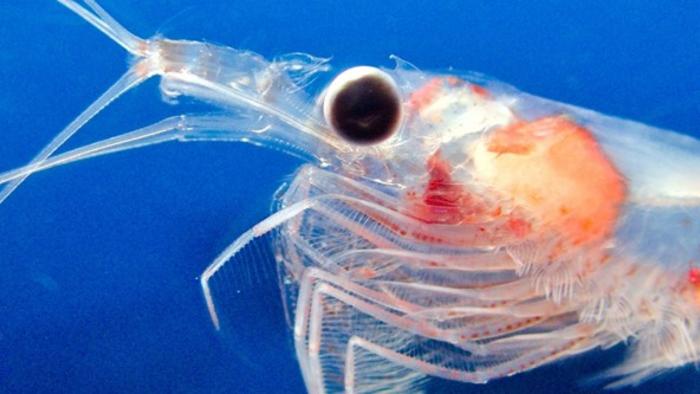Krill in our northern waters show how key marine species can adapt genetically to cope with climate change. This is the discovery made by researchers at Uppsala University in collaboration with an international research group. According to the researchers, their study – published in Nature Communications – provides important knowledge that can help protect marine ecosystems when the climate changes.

Credit: Andreas Wallberg
Krill in our northern waters show how key marine species can adapt genetically to cope with climate change. This is the discovery made by researchers at Uppsala University in collaboration with an international research group. According to the researchers, their study – published in Nature Communications – provides important knowledge that can help protect marine ecosystems when the climate changes.
“Understanding how genetic adaptation works in krill can help us better predict which populations are more or less resilient to climate change. Since so many species in the ocean depend on krill, this knowledge is an important element in protecting marine ecosystems when the climate changes,” says Per Unneberg, a bioinformatician at Uppsala University and first author of the study of Northern krill (Meganyctiphanes norvegica).
Krill, small marine crustaceans that live in large schools, are some of the most common animals on Earth and a crucial food source for many marine species such as whales, seals and fish. But rapid climate change is threatening their survival, with potentially serious consequences for marine ecosystems. If and how zooplankton such as krill can adapt to a warmer ocean has been poorly understood until now. By sequencing and comparing the DNA of 74 specimens from different parts of the North Atlantic and Mediterranean, researchers have now gained a deeper understanding of how these plankton are genetically adapted to their environment.
“Different populations of Northern krill have historically adapted to very different conditions in different parts of the Atlantic. This makes it a perfect model for understanding which genes and functions contribute to adaptation to different marine environments,” says Andreas Wallberg, researcher at Uppsala University and main author of the study.
The study shows that there is extensive genetic variation within Northern krill, which is critical for their ability to adapt to different climates. The researchers identified hundreds of genes associated with adaptation to hot and cold environments. This includes genes related to light and heat sensitivity, as well as to nutrient uptake and reproduction, which are crucial for the species to survive and reproduce under varying conditions in different climates.
“The krill genome is six times larger than that of humans and has unique copies of many genes. Our research shows that specific gene copies may have played an important role in the krill’s ability to adapt to both cold and warm waters. Our results may be of great importance for the conservation of important genetic diversity and marine ecosystems,” says Per Unneberg.
For example, the study suggests that populations of Northern krill living in Scandinavian fjords may be genetic “hot spots” for future adaptation to a warmer North Atlantic and Arctic. This makes conservation of these populations particularly important, according to the researchers.
“This research gives us a new insight into how plankton can survive in a world of rapidly changing climate by adapting genetically. What we have learned about the Northern krill can also be used to understand how other species can cope with climate change – such as the Antarctic krill, which is an important but declining species in the Antarctic ecosystem. This study emphasises the importance of mapping and conserving genetic diversity in marine species to ensure the stability of our marine ecosystems,” says Andreas Wallberg.
Journal
Nature Communications
Article Title
Ecological genomics in the Northern krill uncovers loci for local adaptation across ocean basins.
Article Publication Date
1-Aug-2024



